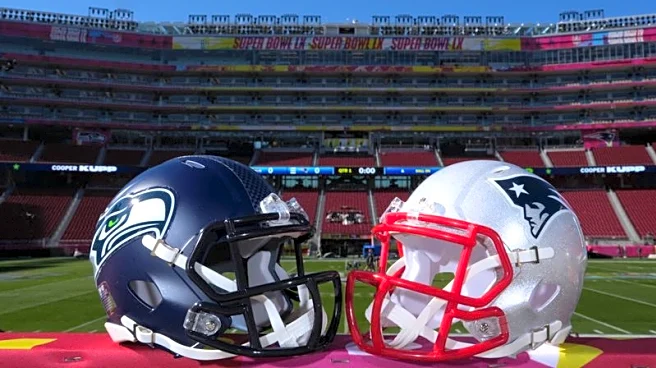What's Happening?
Electronic Arts (EA) has announced a $55 billion deal to go private through a Saudi-backed buyout, marking the largest leveraged buyout in history. This acquisition has raised concerns about the future of BioWare, a renowned RPG studio under EA, known for titles like Mass Effect and Dragon Age. The deal saddles EA with $20 billion of debt, increasing pressure to boost profits. Former BioWare lead writer Patrick Weekes speculates that the focus will shift towards 'guns and football,' potentially sidelining content perceived as politically sensitive. The acquisition is part of Saudi Arabia's strategy to 'sportswash' its regime by investing in entertainment industries.
Why It's Important?
The acquisition of EA by Saudi Arabia's Public Investment Fund could have significant implications for the gaming industry, particularly for BioWare and its fans. The shift in focus towards more mainstream and less politically sensitive content may impact the creative direction of BioWare's future projects, potentially alienating its core audience. The deal also highlights the growing influence of foreign investments in the gaming sector, raising ethical concerns about the motivations behind such acquisitions. For EA, the pressure to increase profitability may lead to strategic changes, affecting game development priorities and corporate policies.
What's Next?
As EA transitions to private ownership under Saudi influence, stakeholders will closely monitor the company's strategic decisions, particularly regarding BioWare's future. The potential shift in content focus may lead to changes in game development and marketing strategies. Fans of BioWare's RPGs are bracing for possible negative impacts on their favorite franchises. Industry analysts will watch for any signs of restructuring or layoffs within EA, as the company navigates its new financial landscape. The broader gaming community will be attentive to how this acquisition affects EA's reputation and its relationship with players.
Beyond the Headlines
The acquisition raises broader ethical and cultural questions about the role of foreign investments in shaping the gaming industry's future. Concerns about 'sportswashing' and human rights issues may affect public perception of EA and its games. The potential sidelining of politically sensitive content could spark debates about artistic freedom and the influence of corporate interests on creative expression in video games.









